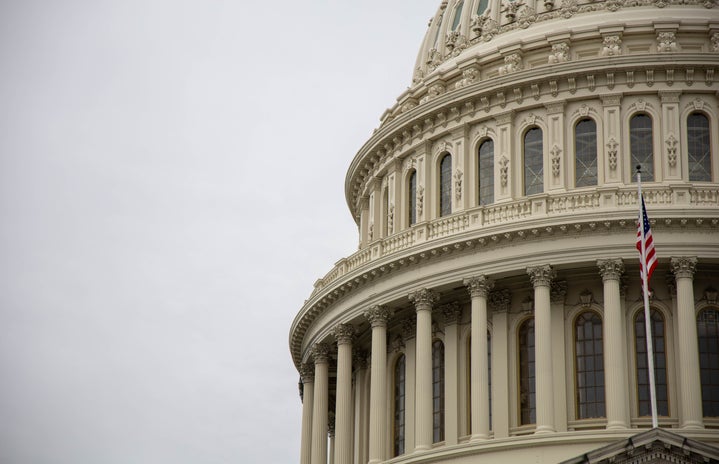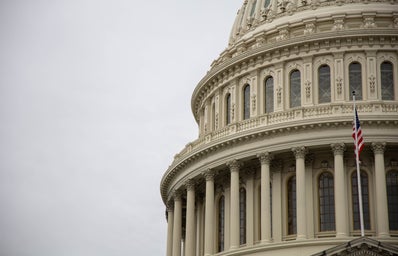January 6th, 2021 will forever live in the minds of American citizens as an unforgettably dark day. I spent it in a hotel room with my grandmother, on our way to drop me off at school. We sat on the couch, eyes glued to the TV for hours. We both fell asleep to the images, rolling and replaying. There had been an insurrection. And we had witnessed it. The implications of this event are almost even more daunting than the insurrection itself, as it goes to show that the movement Trump incited among these domestic terrorists is far from fading into history. As traumatic as this event was for those of us watching from home, it was far worse for the congresspeople and other political figures in the Capitol building that day, who’s lives were at stake. In the beggining of the month, New York Representative Alexandria Ocasio-Cortez bravely shared her experience on her Instagram through a live video which is now available to watch on her IGTV.
Ocasio-Cortez spoke about her past trauma, her experience with sexual assault, and how that traumatic experience connected to what happened at the Capitol. The violation she and so many others experienced as a result of the events on January 6th is something that would’ve seemed unfathomable until it happened, and it meant a lot to hear her describe what actually occurred. She spoke about how trauma compounds and becomes something one has to carry. It was empowering to hear someone with such a huge platform talk about surviving trauma like that. She spoke then about the behaviors of abusers, drawing a comparison between the dismissive nature of abusers in her own life and those congresspeople who spoke out against victims after the insurrection. Some republican representatives handled the event’s after math by downplaying the atrocity of it all, citing individuals such as Ted Cruz and Chip Roy, who released statements through twitter and otherwise that Ocasion-Cortez and victims like her were making too big a deal out of it. “These are the tactics of abusers,” Ocasio-Cortez said in her address.
One particularly powerful moment in the live was when she spoke directly into the camera and said strongly, “Not again. I am not going to let this happen again. I’m not going to let it happen to me again, I am not going to let it happen to the other people who have been victimized by this again, and I am not going to let this happen to our country ever again. I am not going to let it happen.” Clearly deeply affected by the horrific events that transpired that day, the determination in her voice was palpable. These words are comforting to me not only as a citizen of this country, but as a woman. Hearing these words spoken by a powerful woman on behalf of my country, hearing her share her experience with sexual assault, something all too common amongst women world-wide, made me feel included in the protections of the government in a way I hadn’t truly felt before. She spoke, from the perspective of a survivor, about being believed. Another complex many women have, as it is so common for our experiences to be dismissed, especially ones that traumatized us.
It is something so many women can connect on, the idea of being accused of exaggerating, being hysterical or dramatic. Yet here she is, a survivor herself, fighting more boldly than so many male representatives, to show us that we can feel safe again. To show us that there are people in government who are on our side, who are hurting with us, but who still have faith in what our country can be.


